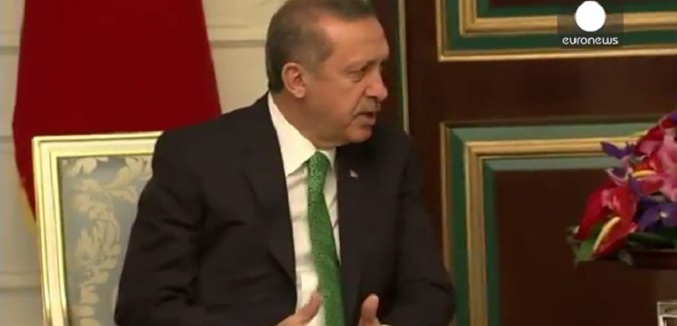Reuters on Tuesday described the emergence and effects of a “golden loophole” in what had been Western efforts to impose sanctions on Iran, with the outlet conveying the contents of a Turkish police report outlining how Turkish channels were used to implement ‘an audacious, multi-billion-dollar scheme involving bribery and suspect food shipments to Iran’:
A review by Reuters of the report’s 299 pages, as well as interviews with currency and precious metals dealers, offer colorful new details of how what police call a “crime organization” allegedly helped Iran exploit a loophole in the West’s sanctions regime that for a time allowed the Islamic Republic to purchase gold with oil and gas revenues.
While the gold trade was then legal, the police report alleges the purported crime network bribed officials in part so it could maintain control of the lucrative business.
Then, when the West last July prohibited the gold trade as a sanctions violation, the police report alleges the network concocted records of shipments of food at preposterous volumes and prices to continue giving Iran access to foreign currency.
The slowly unwinding plot – details of the investigation began to leak months ago in the context of a political war between Prime Minister Recep Tayyip Erdogan and political rivals linked to U.S.-based cleric Fethullah Gulen – has rebounded into policy debates regarding the continuing robustness of the international sanctions regime targeting Iran. Western diplomats agreed in the interim Joint Place of Action (JPA) to erode that regime in exchange for a partial Iranian freeze on various parts of its atomic program.
Critics were quick to worry that the initial decrease in sanctions would trigger a downward spiral as entities scrambled not to get left behind as Iran reopened its markets to the international community, the upshot being that the West would lack sufficient leverage to convince Iran to put its nuclear program beyond use for weaponization. The Obama administration leaned heavily on the argument that it could sharply control how much revenue Iran received.
The Turkish-Iranian gas-for-gold scheme – in which billions of dollars managed to slip through the sanctions net at the height of Western efforts to impose restrictions – has been variously taken as evidence that the Obama administration is either unwilling or unable to rigorously enforce financial restrictions on the Islamic republic:
It’s possible that the Obama administration didn’t have compelling evidence of the role of the Iranian government in the gold trade. However, the president may have also simply sought to protect his relationship with Ankara and didn’t want to get into a diplomatic spat with Erdogan, who he considers a key regional ally.
[Photo: euronews / YouTube]




